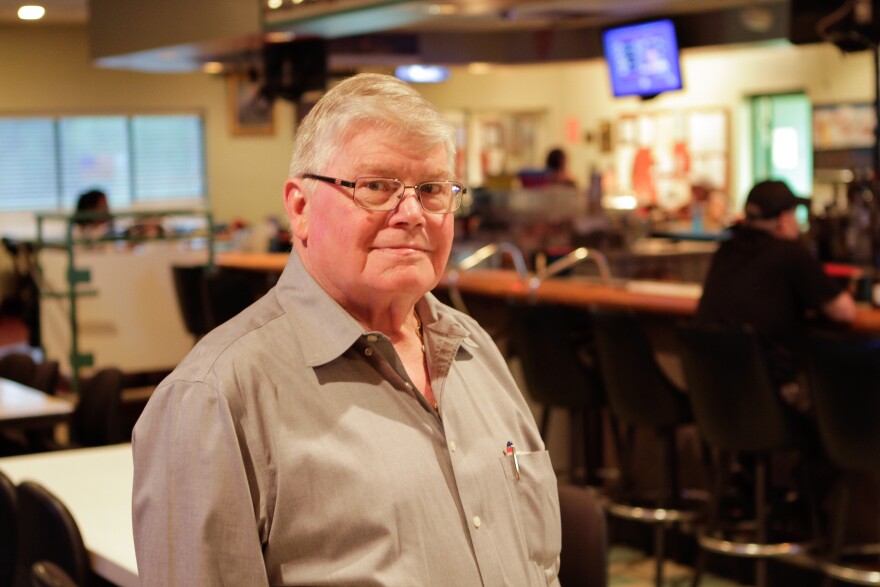The evening crowd slowly wanders in at American Legion post 532 in Southwest Columbus. It’s a Tuesday, when they do a weekly taco dinner.
Post Commander Bernie Brogan served in the Army as a Military Policeman during the Vietnam era. He says all the barstools will be gone within an hour.
“I mean a lot of people think all we do is sit around and drink beer and tell war stories,” Brogan says. “And sometimes that might happen a little bit, but there’s much more—much more to it than that, believe me.”
Since its inception in 1919, the American Legion has lobbied on behalf of veterans, playing an instrumental role in passing the GI bill and pushing for greater access to health care. The issues confronting veterans are as daunting as ever, but as the Legion nears its centennial, membership continues a steady march downward.
Last year, the rolls dipped below 2 million for the first time since 1945, and in Ohio, the legion has lost over a third of its members in the last two decades.
“When I joined here 27 years ago, we probably had, probably, 45 or 50 World War II veterans still active in this post, and I have two now,” Brogan says. “Just two. I lost one last week, that leaves me two.”
“We’re bleeding right now,” Suzette Heller chimes in. “The American Legion is literally bleeding by losing our members.”
As Interim Adjutant for the American Legion Department of Ohio, it’s part of Heller's job to figure out how to stop the bleeding. But she explains it’s a question without an easy answer.

The overall population of veterans is declining, and those who served since 1990 now make up the largest share. But as the Legion shrinks through attrition, it’s having a tough time attracting those younger men and women in uniform.
The Legion's future will come through people like Heller, who served in the Army and National Guard from 1993 to 2005.
“The biggest challenge of getting those new members in is really educating veterans about what our organization does,” Heller explains. “We are not just the post in your community that sells drinks. We are not just a bar.”
Heller says the canteen often associated with the Legion gives members the camaraderie they had in the service, but more importantly, it helped serve as a support system for coping with post-traumatic stress before the disorder had a name. Now, the Legion advocates for access to mental health services and helps to veterans navigate the Veterans Affairs claims process.
But Heller says the organization hasn’t always done a great job explaining the importance of its work to potential members.
“If you’re a veteran who served in the Gulf War or after 9/11 and you’re receiving any kind of benefits while you’re on active duty, or during service, or after service, you’re receiving those benefits as a result of the work the American Legion does,” she says.
Even if the numbers look grim, Brogan remains optimistic about the Legion’s future. He’s not worried about the slow pace of young veterans joining, in part because he was slow to join, too.
“When I was younger, I was already out of the military for 20-something years before I ever joined the first veterans club,” he says. “I mean, I had to work. I didn’t have time to come down here and sit and drink a beer and enjoy myself, I had to work.”
Veterans fall into two broad cohorts: those, like Brogan, who served during Vietnam or before, and more recent service members like Heller. Finding a way to bridge that gap will be front and center this weekend in Columbus, where Ohio legionnaires meet for the 100th time to chart a course for the coming year.






